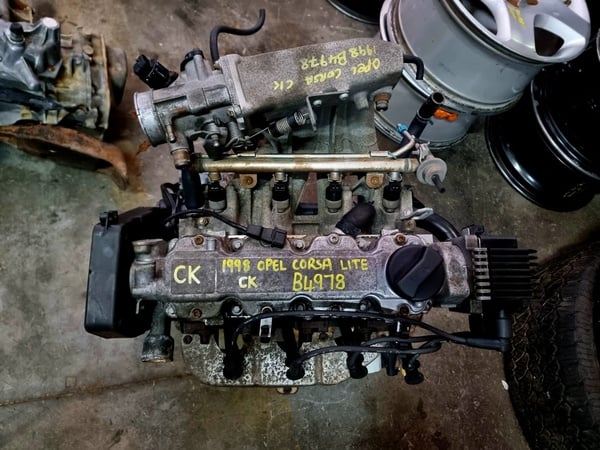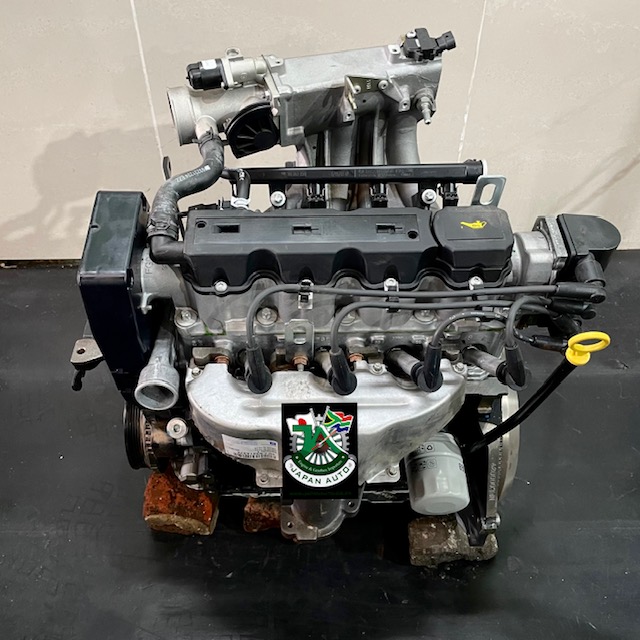Opel Corsa 1.4 Engine Price: Shop High-Quality Car Parts for Your Automobile
Opel Corsa 1.4 Engine Price: Shop High-Quality Car Parts for Your Automobile
Blog Article
Engine Purchasing Expert Tips on Choosing the Right Engine for Your Specific Demands
Choosing the appropriate engine for your details requirements involves a complex interaction of aspects that go beyond mere horse power figures. By diving into the intricacies of power versus performance, examining fuel rankings, and budgeting for long-term prices, one can genuinely optimize their engine option.
Power Vs. Effectiveness: Finding the Equilibrium
When selecting an engine, it is critical to strike a balance in between power and effectiveness to fulfill your particular demands successfully. Power refers to the engine's capability to produce energy for propulsion, determining aspects like acceleration, pulling capacity, and general efficiency - Opel Corsa 1.4 Engine Price. On the other hand, effectiveness associates with exactly how well the engine makes use of fuel to produce power, impacting aspects such as gas economy and ecological friendliness
Achieving the ideal equilibrium in between power and efficiency is essential due to the fact that an engine that is as well effective might eat too much fuel, bring about higher operating prices and unnecessary strain on the atmosphere. On the other hand, an engine that prioritizes efficiency over power might cause sluggish performance, particularly in requiring situations like lugging heavy loads or driving uphill.
To make a notified decision, think about elements such as your typical driving problems, the intended use the vehicle, and your personal preferences. By evaluating your demands and priorities, you can pick an engine that strikes the ideal equilibrium in between power and effectiveness, making certain optimum efficiency while minimizing environmental impact and operating costs.
Understanding Engine Size and Type
To further improve the choice procedure of an engine that strikes the ideal balance between power and efficiency, it is important to explore the complexities of understanding engine size and kind. Engine dimension refers to the overall volume of air and gas that can be pressed with the engine cylinders. It is usually measured in litres or cubic centimeters. Larger engine dimensions normally lead to more power output yet can likewise result in decreased gas performance. On the other hand, smaller engine dimensions are commonly a lot more fuel-efficient but might give up some power.
Furthermore, engine kind plays a critical function in determining the efficiency qualities of an engine. Usual engine types consist of inline engines, V engines, and rotary engines, each with its one-of-a-kind advantages and downsides. The engine type influences aspects such as the engine's dimension, weight distribution, and power distribution. Comprehending the interaction between engine dimension and kind is important in picking an engine that lines up with your details needs and top priorities, whether it be power, efficiency, or a balance of both.

Consider Your Automobile's Requirements
Considering your vehicle's needs is a fundamental action in the engine choice procedure to guarantee optimum performance and functionality. It is vital to assess variables such as the meant usage of the car, its weight, lugging capability, and gas effectiveness demands. As an example, if you are seeking an engine for a heavy-duty vehicle that will be utilized for towing, you will certainly need an effective engine with high torque capacities. On the other hand, if you are choosing an engine for a portable automobile largely used for city commuting, gas performance may be a much more essential factor to think about.
In addition, the surface on which the car will mostly run ought to affect your engine selection. If you frequently drive in hilly or hilly areas, a durable engine with good climbing power will certainly be required. Alternatively, for level surfaces, an extra fuel-efficient engine might be sufficient. By go to my site aligning the engine specifications with your lorry's demands, you can guarantee that your automobile runs efficiently and meets your efficiency assumptions.
Reviewing Fuel Efficiency Scores
Evaluating fuel effectiveness scores is a critical aspect of picking the ideal engine for your car, making sure expense financial savings and ecological sustainability. Gas efficiency scores, generally measured in miles per gallon (MPG) for gas engines or kilowatt-hours per 100 miles (kWh/100 miles) for electric engines, show exactly how far a vehicle can take a trip on a specific amount of fuel or power. Higher MPG or reduced kWh/100 miles worths indicate extra reliable engines, translating to decreased fuel expenses and lower carbon discharges.
Additionally, compare different engine choices within the very same lorry course to recognize the most cost-effective option. Elements such as engine size, weight, aerodynamics, and hybrid or electrical abilities can all affect gas performance.
Budgeting for Long-Term Costs
Strategically preparing for long-lasting costs is imperative when selecting an engine, guaranteeing monetary sustainability over the car's life expectancy. While the preliminary purchase cost of an engine look at more info is a considerable element, it is important to think about the long-lasting expenses associated with maintenance, repairs, and gas intake. Choosing an extra fuel-efficient engine may have a higher upfront price yet can cause considerable cost savings in time. Regular upkeep, such as oil modifications, filter replacements, and tune-ups, is important to maintain the engine running smoothly and successfully, minimizing the risk of pricey fixings down the line.
Furthermore, looking into the accessibility and cost of substitute components for the chosen engine is vital in budget plan preparation. Engines with cost effective and readily offered components can substantially influence long-lasting visit homepage upkeep expenses. Furthermore, taking into consideration the engine's toughness and expected life expectancy can aid avoid unforeseen substitute prices in the future. By thoroughly budgeting for these lasting expenses and factoring them into the decision-making procedure, people can select an engine that not only satisfies their prompt needs however additionally continues to be affordable throughout its life-span.
Conclusion
In final thought, picking the ideal engine for your details needs requires balancing power and effectiveness, comprehending engine dimension and type, considering your automobile's demands, examining gas effectiveness scores, and budgeting for long-lasting expenses. By very carefully thinking about these elements, you can guarantee that you choose an engine that meets your needs and provides optimum efficiency for your automobile.
To better improve the choice process of an engine that strikes the optimum balance between power and performance, it is necessary to dig into the details of comprehending engine size and kind. Engine size refers to the total volume of air and gas that can be pushed via the engine cylinders. Usual engine kinds include inline engines, V engines, and rotating engines, each with its distinct benefits and disadvantages. Recognizing the interplay in between engine size and kind is important in selecting an engine that lines up with your specific requirements and priorities, whether it be power, performance, or a balance of both.

Report this page